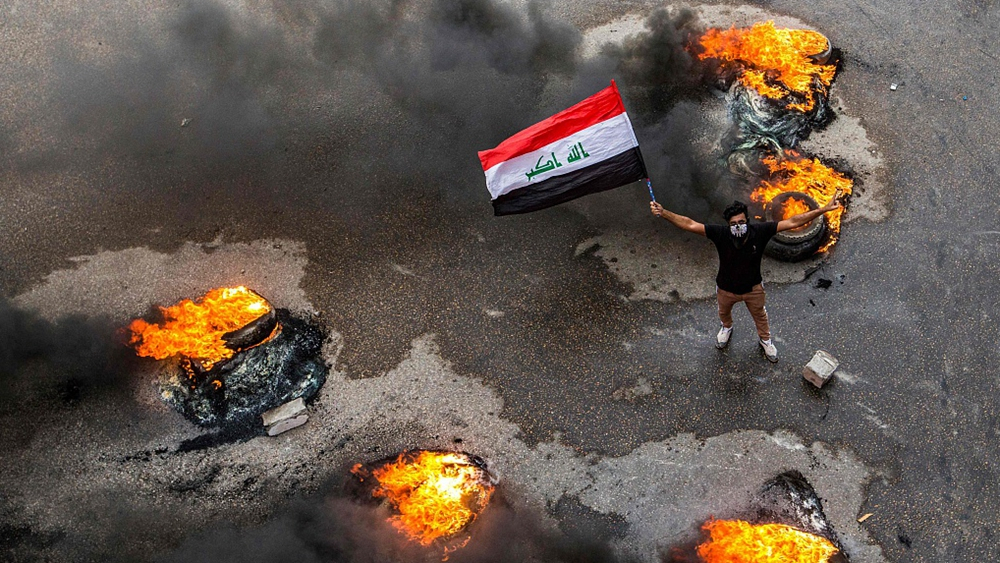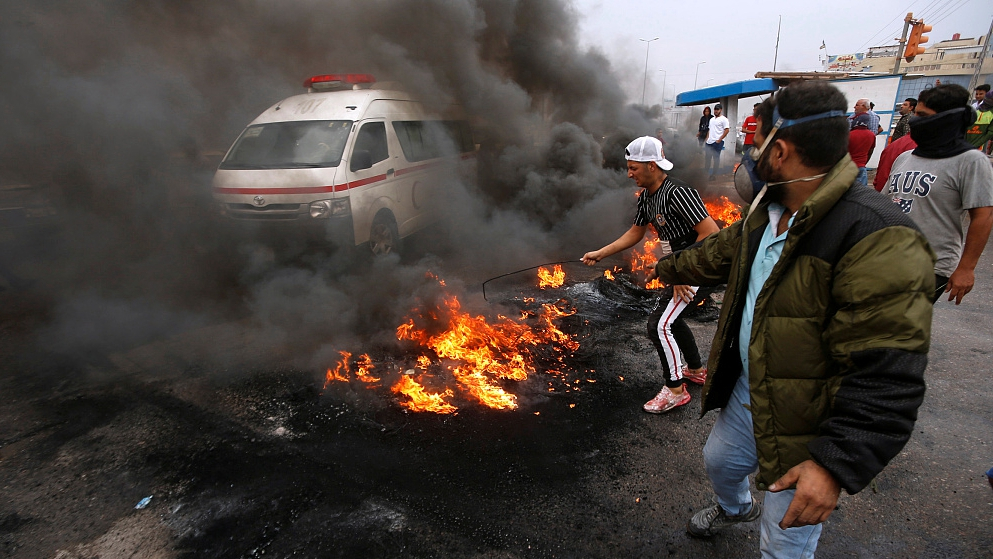
An Iraqi protester wearing a face bandana and waving a national flag poses alongside burning tires blocking a road during a demonstration in Basra, November 17, 2019. /VCG Photo
An Iraqi protester wearing a face bandana and waving a national flag poses alongside burning tires blocking a road during a demonstration in Basra, November 17, 2019. /VCG Photo
Iraqi protesters regained control of a third bridge leading to the Green Zone in the capital city Baghdad on Sunday, taking further ground in the biggest wave of anti-government demonstrations in almost two decades.
Security forces used tear gas and stun bombs to prevent protesters from getting across Ahrar Bridge in central Baghdad, part of a weeks-long attempt to disrupt traffic and reach the Green Zone housing government ministry and foreign embassies.
Protesters made a barricade of old cabinets, trash cans and metal sheeting on the bridge while security forces took positions behind blast walls installed to prevent protesters from crossing to the other side.
It's said that the protesters who choked on the tear gas were evacuated by tuk-tuks.
On Saturday, Iraqi demonstrators reoccupied part of adjacent Sinak Bridge and a nearby tall building in Baghdad that security forces had pushed them away from a week before. They have held a third bridge, Jamhuriya, since October 25.

Iraqi protesters burn tires during the ongoing anti-government protests in Basra, November 17, 2019. /VCG Photo
Iraqi protesters burn tires during the ongoing anti-government protests in Basra, November 17, 2019. /VCG Photo
More than 300 people have been killed since the start of mass unrest in Baghdad and southern Iraq in early October, the largest demonstrations since the fall of Saddam Hussein in 2003.
Protesters are demanding the overthrow of a political class seen as corrupt and beholden to foreign interests.
In Basra in the south, dozens of protesters burned tires and briefly blocked some roads on Sunday, before police managed to restore control and reopen them, police said.
The unrest has shattered the relative calm that followed the defeat of ISIL in 2017.
(With input from Reuters)